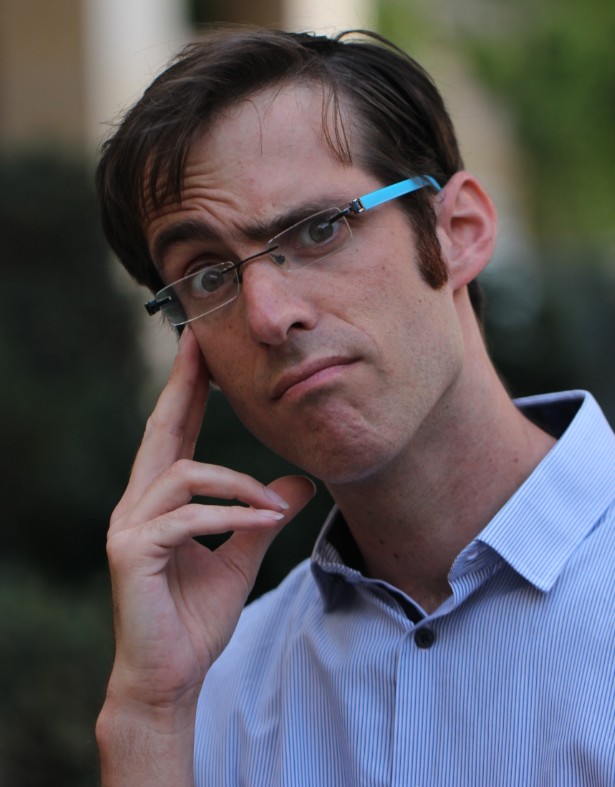Depression and Anxiety
From Childhood Dreams to Meaningful Comedy: The Inspiring Journey of a Jewish Performer
How humor, faith, and purpose shaped the life of an Israeli entertainer
 Nadav Naveh, (Photo: Yael Naveh Hershberg)
Nadav Naveh, (Photo: Yael Naveh Hershberg)
A conversation with Nadav Naveh about balancing creativity, Torah values, and a mission to uplift others.
A childhood story that stays with you?
“When I was very young — about five, I think, we went as a family to Mount Hermon. I went up on the cable car with my father, and while we were riding, he filmed me with his video camera. He loved filming. Even in that video you can already see how drawn I was to the camera. I loved being filmed and talking to the camera. To this day my family still laughs about that video, because it shows that I loved performing and being on camera from a very young age.”
A Jewish idea you feel personally connected to?
“That everything a person thinks, says, and does must be connected to one root, and that root is the will of God. Everything should connect back to doing Hashem’s will. Nothing should be done ‘just because.’ Whether you’re learning Torah or filming a movie — or doing anything else, there has to be awareness of that root. Things should have value. Not just for money and not just for fun. For example, when a project comes my way that has value, I’m much happier to do it.”
A figure who inspires you?
“Uri Orbach. Mainly because he’s a classic example of what I said earlier. He worked in fields that on the surface aren’t connected to Torah at all — journalism, children’s books, and more, but he always tried to connect everything he did to Hashem’s will and to Torah.”
A mitzvah especially close to your heart?
“Tzedakah. It’s not that I’m a big philanthropist, but I do try to appreciate the fact that I am on the giving side and not the receiving side. I feel that my way of thanking Hashem for where I am in life is through tzedakah. I try my best. I don’t always succeed at the level I think is appropriate, but I certainly try very hard.”
Your favorite holiday?
“I really love Purim. Not only because it’s a holiday of joy, but also because it’s the easiest time for me to reach a sense of spiritual uplift and closeness to Hashem. I love Megillat Esther — it’s my favorite part of Tanach.
“In general, I connect very deeply to the central message of the Megillah. The verse, ‘If you remain silent at this time, salvation will come from elsewhere — but you and your father’s house will be lost. And who knows if for this very moment you reached royalty?’ is the verse I connect to most in all of Tanach.
“The message is that Hashem guides the world exactly the way He wants, and we are tools in His hands. If we merit it, He brings good things into the world through us — and if not, then not. Knowing that I am a tool in Hashem’s hands, that I was created in this time with these abilities for a particular mission, is incredibly empowering. It makes me understand that I am here for a reason — and that this has immense value.”
Tell us a bit about your book.
“The book was born from a feeling that writing in this style really does me good — writing from a child’s point of view, in a humorous tone. There are many books in the style of Diary of a Wimpy Kid, but not one where the main character is religious. I felt there was a gap, and I wanted to fill it.
“Yes, a religious child can read Wimpy Kid, but it’s not the same. I wanted religious kids to identify more with the protagonist. And I also wanted the hero to be a positive role model. There’s a lot of criticism about children’s books portraying protagonists who behave unethically. I wanted a hero who is moral and does good deeds — the humor shouldn’t come from bad behavior.”
Where do you see a connection between humor and Judaism?
“Judaism is full of humor. Some people say Judaism is only serious and that you shouldn’t mix humor into it, but I disagree. Proper, refined humor brings real joy, and joy is a great value in Judaism. Everyone needs moments of humor and happiness.
“Also, the Talmud tells of Eliyahu HaNavi seeing two people in the market and saying they were destined for the World to Come. When asked why, he explained that they made people happy. Yes, what I do is mostly making people laugh — but it’s also making them happy. And many times, we hear that sick children, for example, watched our sketches and found strength from them — and that’s incredibly moving. It gives deep meaning to everything we do.”

What are your dreams?
“To continue creating and innovating in ways the audience will appreciate and enjoy. And of course, that the wider public will read the books I’ve written — and will write, and enjoy the culture we hope to share. Beyond that, my constant dream is to reach new audiences.”
Is it difficult to create while also staying within halacha?
“In a sense, yes. When you work in satire and comedy, the line is thin — you need to be very careful. We try to keep very clear boundaries regarding halachic matters like modesty and inappropriate language. And we always try to laugh about behaviors and situations — not about the mitzvot themselves. For example, we might joke about certain things people do during davening, like typical gabai behavior, but never about the prayer itself.”
A moment of regret in your life?
“We had a sketch in our show that poked fun at a certain issue, and one day we learned that the person behind that issue was hurt by it. We never imagined it would hurt him, but it did. It upset me deeply that someone felt pain because of us. We immediately removed that sketch from the show, but still, we messed up, because in the end someone was hurt. We always try so hard not to hurt anyone, and yet, it happened.”
An interesting story that happened to you?
“After shows, people always come up to us and say they enjoyed it, which is always nice. But one day someone told us something incredibly moving. A woman came up and said that our comedy helped her out of postpartum depression. In those moments, you truly feel that you’re doing something important. People say you’re funny, which is nice — but in moments like that, you feel you're doing something truly meaningful.”
Something people don’t know about you?
“As a kid I loved sports, especially basketball, and I played for Elitzur Bnei Brak. In my first game with the team, I scored 40% of our points. The other team beat us 70–5, which is embarrassing by any standard — but I scored two of our five points, which is 40%, so at least my percentages were good.”

